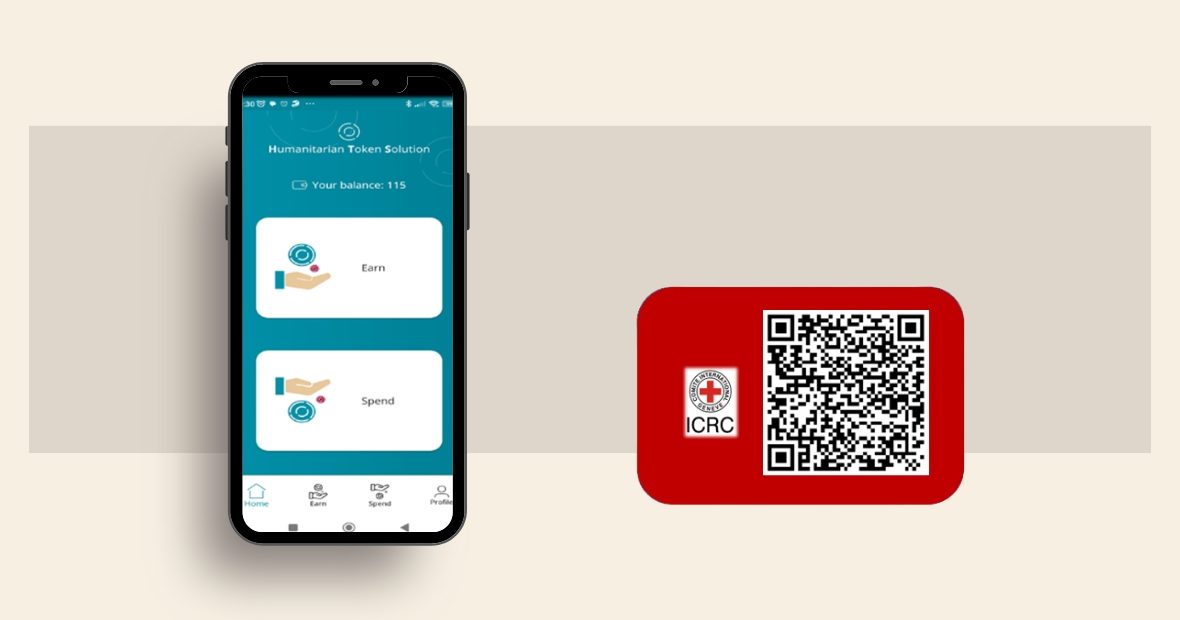When people are desperate, they do desperate things – like giving up their personal data in exchange for humanitarian aid.
Because they have no other choice.
Humanitarian agencies then typically have to share this identifying information with third-party suppliers, with the inherent privacy risks that this brings.
It’s not exactly “informed consent”.
But what if you could reverse-engineer the process, so that aid recipients receive goods or cash without disclosing their identities to anyone other than the agency assisting them?
The Humanitarian Token Solution (HTS), developed over two years by an ICRC research team and Partisia Blockchain, makes this possible.
So how does the HTS work?
There are two categories of HTS users. First, there are people affected by conflict who are eligible for humanitarian assistance. These people are known to – and registered by – the ICRC. In return, they receive digital tokens from the ICRC, which are loaded onto an app on their smart phone or onto a card with a QR code (if they don’t have a smart phone).
The app is free to download and could eventually become part of the ICRC’s RedSafe digital humanitarian platform.
Second, there are people in the community who might not be eligible to receive aid but who still want to participate in the HTS network. These users will not receive tokens from the ICRC, but they can trade tokens with other users via the app.
Suppliers, who could be anyone from a baker to a tuktuk driver, exchange the tokens they’ve earned at an authorized cash agent who is then reimbursed by the ICRC. Tokens cannot be used outside the HTS ecosystem.
“The HTS reverses the normal path of aid distribution from supply-driven to demand-led, by placing the assistance in the hands of affected people, rather than an intermediary, and allowing them to choose who they seek goods and services from. It shares a lot of the benefits offered by over-the-counter cash assistance, without disclosing identities; plus, it gives people a lot more control over who they share their data with.”
Alexandre Gachoud, global cash and market specialist with the ICRC’s Economic Security (EcoSec) Unit.
The standard process for cash assistance in the humanitarian sector is through data-sharing agreements with FSPs, such as banks, money transfer agencies or mobile network operators. This process is necessary to comply with national and international regulations.
Once an agreement is in place, the humanitarian organization advances the funds to the FSP and shares the required identifying information to ensure the cash is delivered to the right person.
“While perfectly acceptable, this set-up is not optimal because data privacy is critical given the people the ICRC works with and assists,” says Gachoud.
“The HTS eliminates the need to share personal data, because the aid recipient is already in possession of the tokens and the QR code required for spending them.”
Other potential benefits include more efficient and faster aid distribution, and the possibility to stabilize the value of tokens. The HTS also provides anonymized statistics. Token transfers will cost no more than a typical bank or mobile money transfer.
Blockchain technology
The process uses technology developed by Partisia Blockchain that enables users to create digital wallets for their tokens without the need for ID verification. The ICRC then links to these wallets to transfer the digital tokens.
Mark Staehle, an EcoSec microfinance adviser who is leading the HTS project, believes the way the system is designed makes it impossible for anyone to know who is transacting with whom on the blockchain.
The amounts transferred by the ICRC are, however, visible on the blockchain, as are the amounts returned to the ICRC by authorized cash providers seeking reimbursement. This is because the blockchain address of the ICRC programme is in the public domain.
But the other party remains anonymous – and peer-to-peer transactions (those not involving the ICRC) are also fully anonymous.
Vincent Graf, head of TechHub at the ICRC’s Data Protection Office, says the HTS addresses the essential dilemma of purpose – in other words, what affected people’s data is processed for?
“Although this concept applies broadly to the humanitarian sector rather than being specific to working with financial service providers, the key question is whether affected people should have control over their data or if humanitarian organizations can share it with partners and donors for other purposes, sometimes not strictly humanitarian,” he says.
“Shouldn’t the right to privacy – and therefore protection – override accountability to donors, governments or other third parties?”
What next?
The HTS prototype has been fully developed and is now ready for field testing. Unfortunately, plans to test it in the field with an ICRC delegation have been put on hold due to the institution’s challenging financial situation. Nonetheless, the research team remains hopeful that a solution can soon be found with a delegation or with another humanitarian agency.
“Since the start, the HTS has been something that we want to use internally to complement our assistance delivery mechanisms and improve the way we protect aid recipients’ data. But we also want to influence other humanitarian actors by showing that it’s possible to deliver quality financial assistance in a digital format, in a way that respects affected people’s data,” says Gachoud.
“The HTS is an open-source solution so one option would be for another humanitarian organization to test it, with the ICRC observing.”
If you would like a demonstration or are interested in testing the HTS, please contact Mark Staehle mstaehle@icrc.org, Alexandre Gachoud agachoud@icrc.org or Vincent Graf Narbel vgraf@icrc.org

